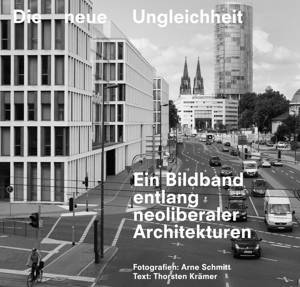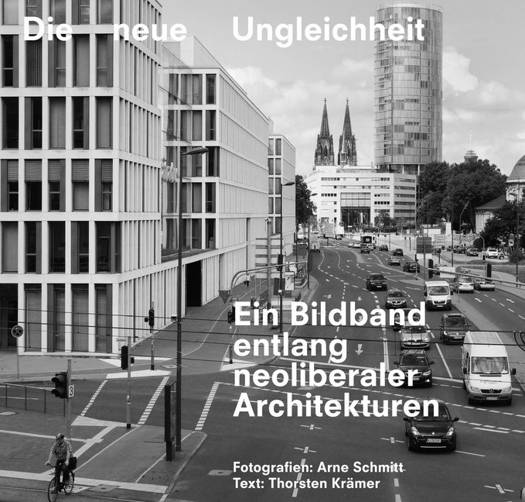
Bedankt voor het vertrouwen het afgelopen jaar! Om jou te bedanken bieden we GRATIS verzending (in België) aan op alles gedurende de hele maand januari.
- Afhalen na 1 uur in een winkel met voorraad
- In januari gratis thuislevering in België
- Ruim aanbod met 7 miljoen producten
Bedankt voor het vertrouwen het afgelopen jaar! Om jou te bedanken bieden we GRATIS verzending (in België) aan op alles gedurende de hele maand januari.
- Afhalen na 1 uur in een winkel met voorraad
- In januari gratis thuislevering in België
- Ruim aanbod met 7 miljoen producten
Zoeken
Arne Schmitt: New Inequality
A Photo Book Tracing Neo-Liberal Architectures
Arne Schmitt
Paperback | Engels
€ 41,95
+ 83 punten
Omschrijving
In March 2009 Cologne's historical Stadtarchiv collapsed: a catastrophe that can be seen as a consequence of a neoliberal programme of urban redevelopment. Yet for all that, critiques of neo-liberalism often run into difficulty because they lack a clearly defined object to focus on. Faced with structural complexities, their analysis and criticism is often directed towards isolated instances. Arne Schmitt confronts this tendency in his book with a resolutely straightforward approach, or -- to use a key concept from the accompanying text by writer Thorsten Krämer -- with uncomplexity. On a clearly mapped-out walk through Cologne, Schmitt photographs architecture from different periods, all in black and white. The images and the form of the book thus refer back to the theme-oriented photo-books of the 1950s and 1960s, in which political and social critiques of the day were combined with photographic depictions of the city -- a level of achievement that is well worth recapturing.
Specificaties
Betrokkenen
- Auteur(s):
- Uitgeverij:
Inhoud
- Aantal bladzijden:
- 88
- Taal:
- Engels
Eigenschappen
- Productcode (EAN):
- 9783959050272
- Verschijningsdatum:
- 1/02/2016
- Uitvoering:
- Paperback
- Formaat:
- Trade paperback (VS)
- Afmetingen:
- 208 mm x 226 mm
- Gewicht:
- 340 g

Alleen bij Standaard Boekhandel
+ 83 punten op je klantenkaart van Standaard Boekhandel
Beoordelingen
We publiceren alleen reviews die voldoen aan de voorwaarden voor reviews. Bekijk onze voorwaarden voor reviews.









